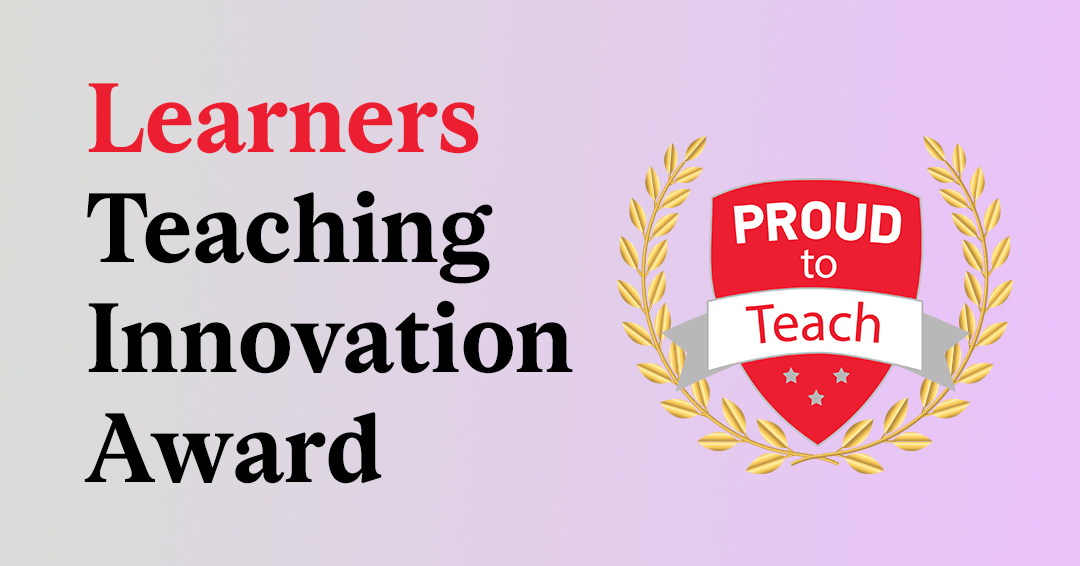Six learners and one group of students are recipients of the inaugural Teaching Innovation Award, which was created by the office of the Vice-Dean, Education, Dr. Annette Majnemer, to recognize faculty members and learners who developed and implemented innovative teaching strategies that are learning- and learner-focused.
“These award recipients are not only excelling as learners, but also leading teaching initiatives that have an impact on their peers, our Faculty and the broader community,” says Dr. Majnemer. “Congratulations to all of the award winners!”
The award recipients were announced as part of the Faculty’s ongoing Proud to Teach campaign during Teacher Appreciation Week, which takes place annually in Quebec during the first week of February.
About the recipients:
Ian Beamish
Mr. Beamish created the McGill Ultrasound Interest Group (MUSIG), a McGill Medical Students’ Society club with the mandate of increasing students’ access to hands-on point-of-care ultrasound (POCUS) training. He then worked with others to establish MTL-SONO, the first-ever student-run nationally accredited POCUS conference. The 2020 virtual edition had speakers from four countries and some 500 participants from 17 nations. Their new scholarships and project grants will support POCUS outreach and education worldwide. He is also working to create a Train-the-Trainer program in Guatemala to support accredited training and to promote POCUS in low-resource settings.
Cyril Boulila
A fourth-year medical student with a Bachelor’s and a Master’s degree in physiotherapy, Mr. Boulila developed physiotherapist-led workshops for medical students to enhance their knowledge and management of musculoskeletal complaints. The workshops alternated between theoretical presentations about basic musculoskeletal assessment techniques and hands-on practice in small groups with feedback from Master’s-level physiotherapy students. This interprofessional learning environment provided an innovative approach for musculoskeletal education.
Dr. David D’Arienzo
Pediatrics resident Dr. David D’Arienzo is a driving force behind the Heart & Hands Pediatric Clinic, Canada’s first and only resident-led, school-based clinic. The clinic, built directly within an elementary school, moves pediatric residents into the community where they serve as leaders in care management. Residents work alongside a patients’ teachers and school staff to improve healthcare accessibility among vulnerable populations. The clinic stems from a unique partnership between the Montreal Children’s Hospital and the Lester B. Pearson School Board, rooted in a community-based and interprofessional approach.
Dr. Ian Gerard
Dr. Gerard created The Rad Onc Handbook, an educational smartphone application designed for medical students to orient them to the field of radiation oncology. An educational resource with diverse content related to introductory topics in radiation oncology, along with interactive quizzes and teaching cases. The app is available for download here. Dr. Gerard obtained a Bachelor’s (2011) and Master’s (2013) degree in medical physics, then continued with a PhD in biomedical engineering (2018) followed by a medical degree (2020).
McGill WRAH 2020 Campaign Student Committee
Inspiring the willingness to act and enhancing the skills of individuals in responding to cardiac arrests is a crucial public health investment, and perhaps the most impactful approach to reducing the morbidity and mortality of cardiac arrests. The McGill University World Restart a Heart (WRAH) 2020 Campaign reached over 440,000 individuals, making unbelievable strides in preventing fatal outcomes from devastating families in our very own community, and around the world. Congratulations and thank you to the McGill WRAH 2020 Campaign Student Committee: Jeremy Y Levett, Simon Bichara-Allard, Elodie Chamass, Sirin Chami, Alexa Ehlebracht, Sarah Elbaz, Amanda Essebag, Christina Skiadopoulos.
Mégane Pépin
As part of the popular Research Project in Science Teaching and Learning (FSCI 396) course, Ms. Pépin developed e-learning activities aiming to foster higher learning skills in students, based on “good e-learning practices” criteria extracted from academic literature. These served as frameworks for BIOC311 Teaching Assistants to design 45 additional sample problems and allowed the course to switch its focus from memorization to higher-order skill acquisition on Bloom’s Taxonomy. Ms. Pépin is in the final year of her undergraduate studies, majoring in Physiology while pursuing a minor in Entrepreneurship in the Desautels Faculty of Management.
Dilhan Perera
A graduate student in the Division of Experimental Medicine, Mr. Perera initiated the redesign of a final presentation in a microbiology lab course to increase student interest and engagement during the COVID-19 pandemic. This involved more active learning principles, to include self-directed learning and peer-assessment techniques. He also creates educational videos on TikTok, which bring awareness to microbiology and immunology. His TikTok account (@ta.dil) boasts over 860,000 followers with videos reaching some 15 million views.
February 4, 2021

